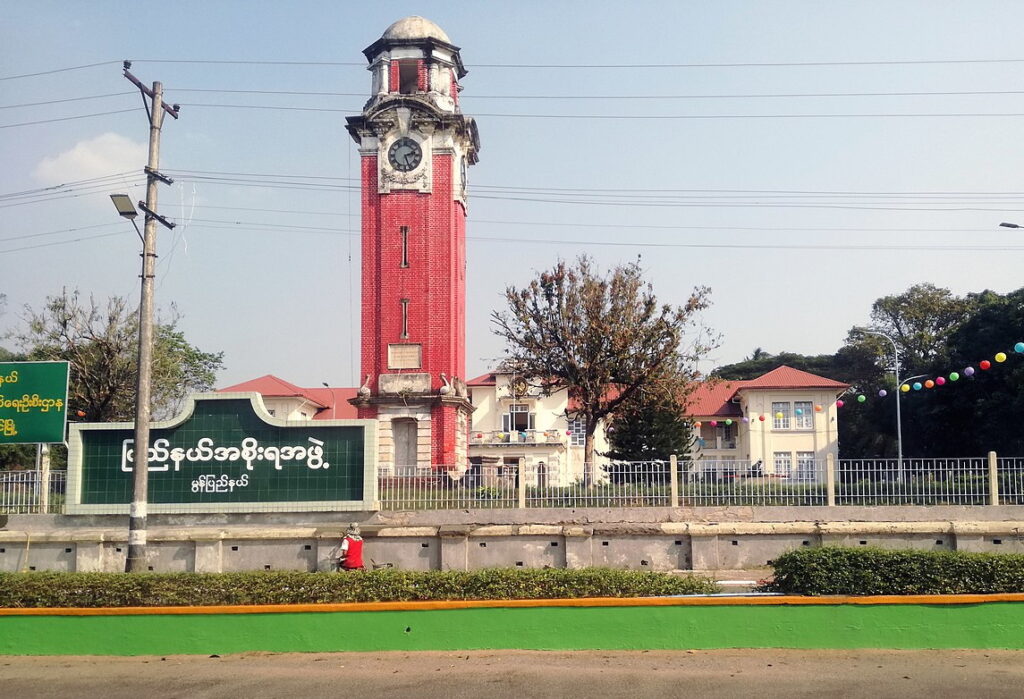What is working between the Union and State levels of government, and what needs to change? : Responses from parliamentarians
January 18, 2021
HURFOM: According to Myanmar’s 2008 Constitution, the Union level government has more authority than State level governments. This is laid out explicitly in Table #1 and #2 of the Constitution.
This constitutional hierarchy of authority is a concern for ethnic parties, and those concerned with having adequate autonomy to address governance issues that impact the rights and livelihoods of ethnic communities.

Not surprisingly ethnic political party candidates that won in the Mon State election are calling for their State governments to use all legal avenues to strengthen the authority of the State.
Also, at play is the timeline for the Union and State Parliaments.
The first session of the third Union Parliament will begin in the first week of February, 2021. During this session, Parliament will choose the President and members to serve on different Union bodies.
The third Mon State Parliament session will begin on February 8, 2021.
Given this backdrop, HURFOM contacted the State level winning candidates and asked for their thoughts on two questions.
i) What are the weaknesses of the incumbent government?
ii) What suggestions do they have for the new government?
Below is a summary of the responses we received from parliamentarians to these two questions.
Weaknesses of the incumbent government
Due to speed and scope that decentralization has taken place, the State government is too weak to exercise its authority as allowed by the Constitution Table #2.
“The State government couldn’t implement its authority in Table #2 which was approved by the Union Parliament in 2015. Only high-ranking officials controlled the power so that the bureaucracy can’t run very well,” said Nai Layi Tama from the Mon Unity Party (MUP).
The Mon State government is also unable to implement what they promised regarding a response to the growing illegal drug crisis.
“The incumbent government can’t fulfill what they promised to the Parliament. For example, the Municipal Law. The Parliament has approved the law but the government has not [brought the law into force]. The government has not cooperated with the people in making drug arrests,” said Min Aung Htoo from the MUP.
Daw Khine Khine Lei with the National League for Democracy (NLD) said, “The government didn’t do what was approved in the parliament. The government did not cooperate well with the parliament. The parliament agreed to reinforce the rule of law and handle drug issues but the government was weak in implementing them.”
The government has done an acceptable amount regarding local development projects but they were very weak in adopting and implementing policies, continued Daw Khine Khine Lei.
Mon State Chief Minister, Dr Aye Zan has made promises that the State will see great improvements but his government is weak in improving the economic sector, and there was no transparency related to mega projects.
“When they start a project, they do not inform the public clearly. There is no transparency,” said Min Aung Htoo.
Suggestions to the New Government
The first priority for the new government should be to ease the speed and scope of decentralization, and to promote the authority and capacities of the State government.
“The new government must start exercising the authority of the State government which was approved by the Union Parliament. If so, there are many opportunities for them. The Mon State will improve a lot after the decentralization,” said Nai Layi Tam.
Priority must be sectors related to the people’s livelihoods such as transportation, electricity and market.
“The Ye Township hasn’t had electricity provided by the government. The people in Mon State livelihood are dependent on agriculture and fishing. The government must create a fair market for them,” said Min Aung Htoo.
Parliament represents the people, — the Unity government must listen to the State Parliament.
“The Unity government must be in harmony with the State Parliament. They must respect the Parliament which represents the voice of the people. They must eradicate personal feelings and do things professionally,” advised Daw Khine Khine Lei.
Improve overall efficiency
The incumbent government has implemented less than 50% of tasks and proposals approved by the Parliament, according to the Vice Speakers of the Mon State Parliament, Dr Aung Naing Oo.
Comments
Got something to say?
You must be logged in to post a comment.



















































